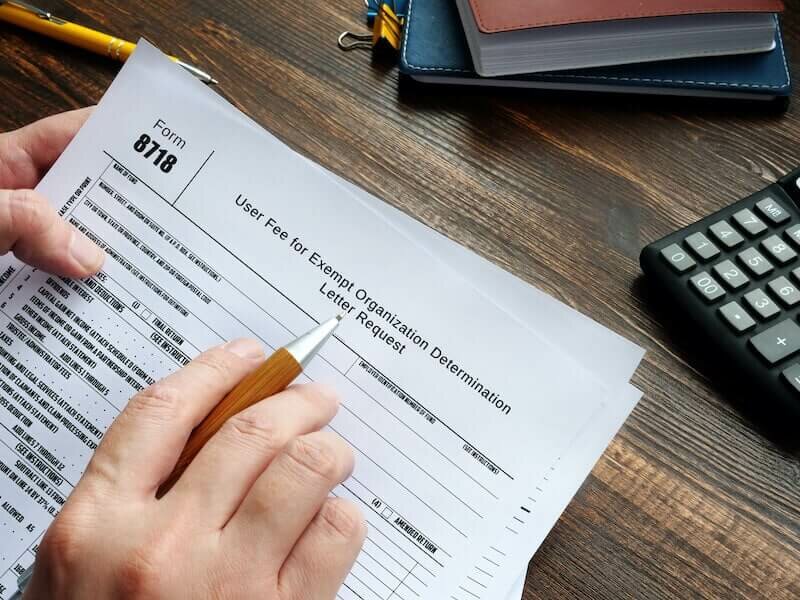If someone is about to buy my house in Wisconsin, I know a property tax bill will likely follow close behind. All property owners in Milwaukee, Madison, La Crosse, and elsewhere should be prepared to face an annual bill of property assessments for state and local purposes in Wisconsin. They should also be ready to pay when buying or selling a house or a piece of land.
In addition to income tax, property tax assessments in Wisconsin are the primary way all government agencies – including state departments, local school districts, municipalities, public colleges, and special districts – pay for services.
In this article, we will look at Wisconsin property tax laws and Wisconsin property tax exemptions. We will also help you determine if any Wisconsin statutes may help exempt you from paying Wisconsin property taxes at the state or local levels.

An Overview of Property Taxes in Wisconsin
At the state level, property taxes help pay for social programs like AFDC (Aid to Families with Dependent Children). Locally, property tax assessments pay for things such as street and sewer maintenance or economic development efforts.
According to the Wisconsin Department of Revenue (DOR), all tangible and personal property is taxed unless specifically exempted. So, remember, if you are accepting a cash offer for your house, then you will likely be required to pay property taxes.
The State of Wisconsin looks at two types of individual property taxes: real and personal.
Real property includes land, buildings, fixtures, and improvements. In Wisconsin, there are eight classifications of real property:
- Residential – untilled land with at least one dwelling
- Commercial – parcels where the main use is for selling merchandise or providing a service
- Manufacturing – land used for creating tangible items for profit
- Agricultural – land used to grow crops or pasture animals
- Undeveloped – uncultivated land not used for any other purpose
- Agricultural Forest – land that is capable of commercial forest production but not currently used in that way
- Productive Forest Land – parcels used to create forest products, such as lumber
- Other – farm-related land not categorized elsewhere
Personal property includes all the items you own. Wisconsin breaks down taxable personal property into four categories:
- Watercraft – boats, jet skis, etc.
- Machinery – any equipment used to build items
- Furniture – any equipment not considered a machine
- Other – all remaining non-exempt personal property
State auditors in Madison then use two values to determine how much you owe in Wisconsin property tax: assessed value and equalized value. These points are especially important if you are selling a house with a tax lien.
Assessed values are often determined by a percentage of a parcel’s purchase price or current fair market value. The Wisconsin Department of Revenue (DOR) assesses manufacturing properties, while each city assessor determines the property tax rate for Wisconsin’s other types of real property.
Equalized values are those state auditors convert from each local assessor to ensure every Wisconsin property taxpayer pays their fair share.
According to the most recent statistics available, the state levied more than $580 Billion in property tax assessments in Wisconsin in 2019.
Wisconsin Tax Laws
Wisconsin tax law considers property to be either general (taxable) or exempt (non-taxable). Individuals and corporations that own general property should pay property taxes each year.
Each local taxation district must submit its annual budget before the state assessor’s office in Madison can determine the property tax rate throughout Wisconsin. And they have been rising for the past few years.
For example, cash home buyers in Brookfield can’t know how much property tax they owe until each local government has its say. That means the state, City of Brookfield, Waukesha County, local school districts, and every other special taxation district in Brookfield must finalize their individual budgets before the municipal property is taxed.
State tax assessors then crunch those numbers to determine each real estate owner’s property tax bill in Wisconsin. The total property tax assessment is then simply divided by all the Individual and corporate property taxpayers.
Wisconsin Property Tax Exemptions
Most general property owners throughout the state must pay property taxes in Wisconsin. But companies that buy houses in Milwaukee know the state offers taxpayers some specific, qualifying property tax exemptions.
1. Educational Institutions – Land owned by any educational association and used exclusively for a not-for-profit school is considered exempt, and the association does not have to pay taxes. The parcel must be less than 10 acres.
2. Religious Institutions – Property owned by churches or other religious associations is exempt. This stipulation includes clergy or teacher housing.
3. Benevolent Associations – Organizations that provide services or activities that benefit the greater society can forgo paying their property taxes.
4. Low-Income Housing – Certain organizations that provide housing opportunities to low-income individuals, seniors, or families may be eligible for a tax break.
5. Nonprofit Organizations – Groups with a recognized IRS determination of nonprofit status are exempt.
6. Retirement Homes for the Aged – State law requires any exemption under this provision to be a nonprofit, benevolent association that provides housing for the elderly.
7. Fraternal Societies – Organizations such as the Elks, Odd Fellows, or Masons, who operate as a lodge system (local branches under a statewide or national charter), are eligible for property tax exemption. However, neither college fraternities nor sororities are exempt organizations under this provision.
8. Government-owned Property – Any land or buildings owned by the U.S. government are property-tax-free.
9. Archaeological Sites – Land that Wisconsin has identified as a site of historical interest or appeal may be exempt.
10. Cemeteries – This exemption includes land adjoining burial mounds and individual burial sites.
11. Native American Property – All land located on the reservation of a Native American tribe is exempt.
As far as personal property is concerned, Wisconsin property tax exemptions include the following:
1. Computers – Mainframes, personal computers, and peripheral equipment are non-taxable.
2. Energy Systems – Any equipment that directly converts biomass into synthetic gas or biogas is eligible for an exemption.

How to Find Out If Your Exempt from Property Tax in Wisconsin
The state does not automatically grant Wisconsin property tax exemptions. Individual property owners must ask for a property tax exemption each year if they believe they are eligible.
To do so, homeowners or organizations must file Form PR-230, the Wisconsin Property Tax Exemption Request form, by March 1 of each year to forgo your property tax bill in Wisconsin.
The form asks for standard contact information and the type of property use that qualifies for a Wisconsin property tax exemption. It also requires you to cite the state’s specific statutory reference and language. So, it might help to have an attorney go over the form with you at least the first time to ensure you are filling it out correctly. Any mistakes could result in the government denying your Wisconsin property tax exemption.
Finally, you must attach Wisconsin property tax documentation to go along with Form PR-230. Documentation might include an IRS determination letter for nonprofit status, articles of incorporation, ordination papers for clergy members, or other information that will aid your Wisconsin property tax case. Again, an attorney knowledgeable in Wisconsin property tax law might be helpful in this matter.
Conclusion
Most real estate owners must pay a property tax bill in Wisconsin each year. But there are certain Wisconsin property tax exemptions that you might qualify for if you use your property for specified tax-exempt purposes. The above article, and a good Wisconsin property tax lawyer, can help you determine if you can waive your property tax assessment in Wisconsin.
